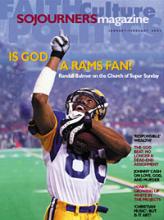Honky, by Yale sociologist Dalton Conley, is a memoir of growing up during the 1970s and 1980s in the projects of New York's Lower East Side. Anybody who has lived in an American inner city will recognize the turbulent urban environment Conley describes: the concrete sidewalks strewn with broken glass; the blocks of boarded-up, bricked-over, and burnt-out crack houses; the dread of walking alone at night; and the threat of intimidation by gangs. For those who haven't lived in the inner city, Conley offers an intimate view of what it is to grow up poor in one of America's most destitute neighborhoods.
Yet, as you might have guessed by the book's rather sensationalistic title, Honky has a twist: Conley and his family are white, while everyone else living in the projects is African American or Latino. Though the term "honky" only appears a few times in the book, it is clear that the issue of race creates an environment of perceptions and projectionsboth their own and those of othersthat must constantly be navigated by the Conleys. Race, he writes, is something most white people in America never have to deal with personally. "Ask any African American to list the adjectives that describe them and they will likely put black or African American at the top of the list. Ask someone of European descent the same question and white will be far down the list, if it's there at all."
Read the Full Article
